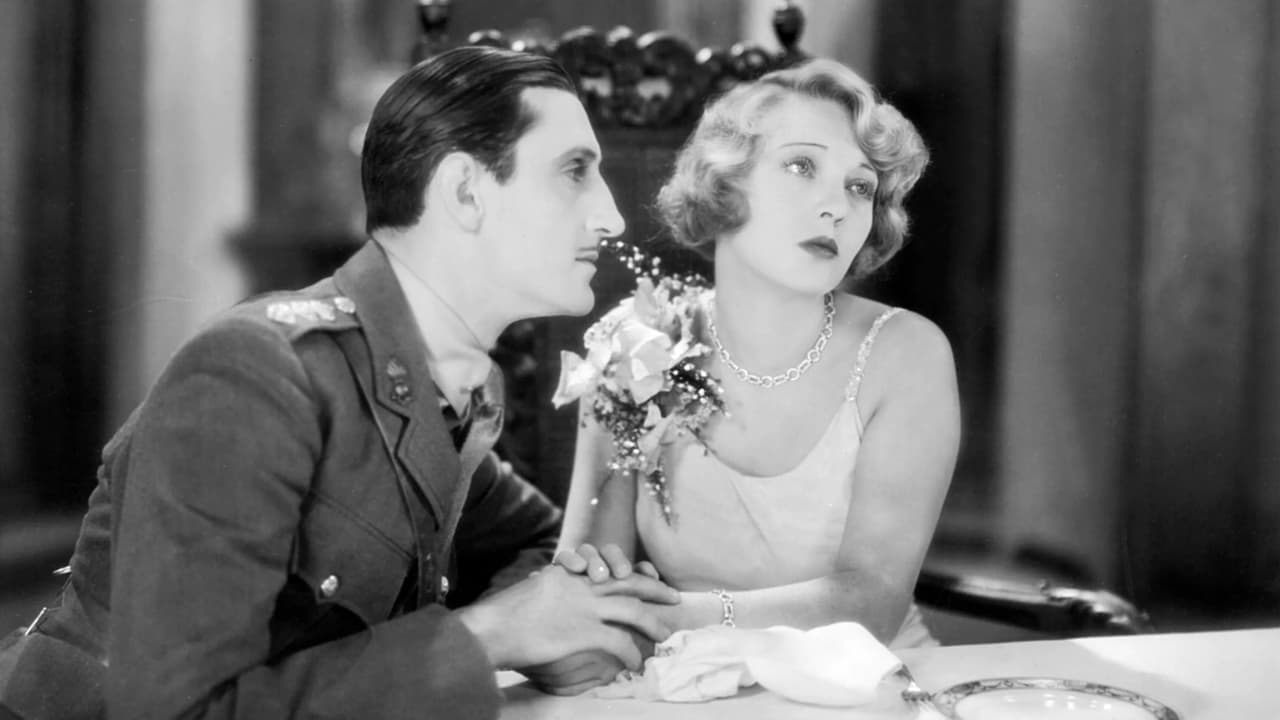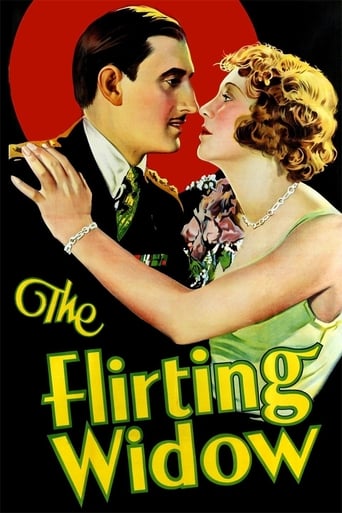

Purely Joyful Movie!
... View MoreBest movie ever!
... View MoreThe film was still a fun one that will make you laugh and have you leaving the theater feeling like you just stole something valuable and got away with it.
... View MoreA film of deceptively outspoken contemporary relevance, this is cinema at its most alert, alarming and alive.
... View MoreCelia comes from a rich British family and her father has very peculiar and old fashioned ideas. He won't allow his second daughter to marry until his oldest, Celia (Dorothy Mackaill), marries. Well, Celia is a bit masculine in her style and doesn't appear to want to marry anyone. So instead she creates a fictional fiancé, Colonel John Smith of the British Army. She even writes a letter to this fictional man...and it somehow gets delivered to an actual Colonel John Smith (Basil Rathbone)! In the meantime, she creates a fake obituary and pretends that her beloved was killed. However, when the real Smith shows up, things get interesting!Like any film from 1930, its style isn't as smooth or sophisticated as talking pictures from just a couple years later. Due to primitive recording equipment, the characters tend to stay in one general spot during most scenes (usually because there was a microphone hidden someplace nearby instead of the boom microphone in later films. And, they hadn't yet figured out how to include incidental music...so it seems a bit odd. You cannot hold these things against the film...it is a product of when it was made.Overall, this is a cute film with a clever script. The only problem that when it was made it played well...and only a few years later, it would seem badly dated. Clearly, this film could be great if it were remade. As it is, it's clever and enjoyable for someone who appreciates early talkies...others might find it a bit stilted and flat. My score of 7 takes into account when it was made as well as its entertainment value today.
... View More...and he's quite dashing, a tall charmer of exquisite phrasing and mellifluous voice. Here he's a military man who, for complicated plot reasons, receives a love letter from a woman he never met. That's Dorothy MacKail, now utterly forgotten, but a quite popular and capable Follies beauty who starred in a number of early talkies. She's an heiress who has had to invent a fiancé so her younger sister can wed, and her total fabrication of a love letter has been delivered to Rathbone. It's a slightly stiff early-talkie drawing room comedy of scant surprise and pedestrian direction, by William A. Seiter, and has a not terribly interesting supporting cast; best is Emily Fitzroy, as a tippling aunt. But MacKail and Rahbone were always worth watching, and they do strike sparks as they spar and deceive one another. An OK hour and a half, and if it makes you hungry for more Dorothy MacKail, that's understandable.
... View More...because I think "The Flirting Widow" is an early talkie delight, practically an ancestor of the screwball comedy. The setup of the story is this - Faraday (Claude Gillingwater) is an English gentleman with three daughters. The middle daughter has already married and now the youngest daughter,(Flora Bramley as Phyllis), wishes to marry Bobby (Anthony Bushell). But Faraday is old fashioned, the type that believes daughters should marry in order of age so that the older unmarried sisters are not branded spinsters. Faraday breached this law once, but he won't do it again for Phyllis. Celia (Dorothy McKaill), the oldest must marry first. Unfortunately, Celia dresses in drab manly fashions and even wears her hair slicked back like a boy, has no suitor and wants none. Her family hasn't made it easy for her to socialize either, because with her mother deceased, it has pretty much fallen to Celia to organize the servants and make sure all of the household supplies are purchased and paid for.When Celia returns home from a house party she has been to and hears Phyllis' problem, she comes up with an answer. She claims she has become engaged to a fictitious Colonel she met at the party, and he has sailed that day with his regiment to Arabia. What Celia plans to do is wait until Phyllis is married and then place a death notice in the papers saying her fictitious fiancé has died in combat. In the meantime, being engaged, she is now free to socialize like the younger daughters, she spruces up her wardrobe, literally lets down her hair, and becomes the attractive Dorothy McKaill we are accustomed to seeing.But her female relatives are too nosy. They demand she write "Wobbles" - her fictitious pet name for Colonel "John Smith". She does and thinks that she has tossed the letter into the fire. What she doesn't know is her sisters do her a favor, look up Colonel Smith (Basil Rathbone) in the military registry, and mail the letter for her. Yes, Col. Smith actually exists, receives this letter from the fiancée he did not know he had, and is so intrigued that he decides to meet Celia in person. Imagine his surprise to find, when he reaches the Faraday home, that he is not only engaged, he is dead too! Dorothy McKaill did not surprise me here - she's always been able to project a range of emotions. The real surprise here is Rathbone who proves himself very able at comedy. Emily Fitzroy, who usually plays wicked older women, is hilarious as Celia's aunt Ida who means well but has a weakness for brandy. If Claude Gillingwater had lived longer and been a tad bit younger, he would have played the kind of roles that Charles Coburn got later on.The only thing that hurts the film is the pace is just a bit slow - but not bad at all if you realize that pacing was one of the things with which all of the early talking films had trouble. Highly recommended.
... View MoreThe Laughing Widow (1930) * 1/2 (out of 4) A father (Claude Gillingwater) won't allow his youngest daughter (Leila Hyams) to marry the man she loves until her older sister Celia (Dorothy Mackaill) finds someone to marry her. Celia doesn't want to stand in the way of her sister so she makes up a fake fiancé but things take a turn for the worse when this mystery man ends up getting killed and his friend (Basil Rathbone) shows up at the house to give his items to the "widow." THE LAUGHING WIDOW is a real embarrassment and I'm really shocked to see that it came from First National and not some low-rent comedy that was just turning out movies to try and cash in on the sound craze. On a technical level this is one of the worst films I've seen from this era as it seems that the director either fell asleep at the chair or perhaps all the good takes were destroyed and all they had left to use in the film were outtakes or rehearsals. For the most part the camera is always just sitting still so there's no style to think of and most of the time the actors are delivering their lines with no feeling or passion. It really does look as if they weren't giving it their all because they thought it was just a run through or something. Mackaill, who had a pretty good run of films, is pretty forgettable in her part as is Hyams and Gillingwater. The funny thing about watching so many rare movies on Turner Classic Movies is that it keeps proving my thought that Rathbone has to have one of the greatest jumps in regards to talent. We all know he became a fabulous actor in the upcoming years but these early roles of his often find me wondering how it happened. He too is quite bland here and lacks any emotion in the role. The biggest problem with the film is simply how unfunny it actually is. The jokes never work and it appears as if no one was trying to make them work. This here is only recommended to bad movie lovers.
... View More